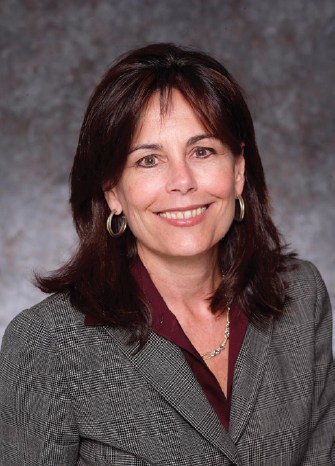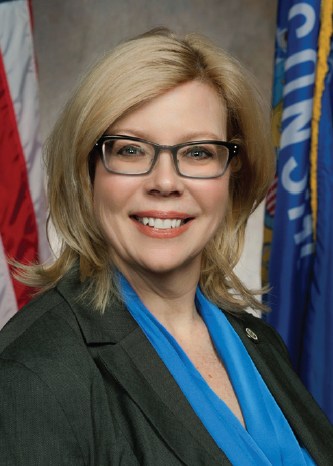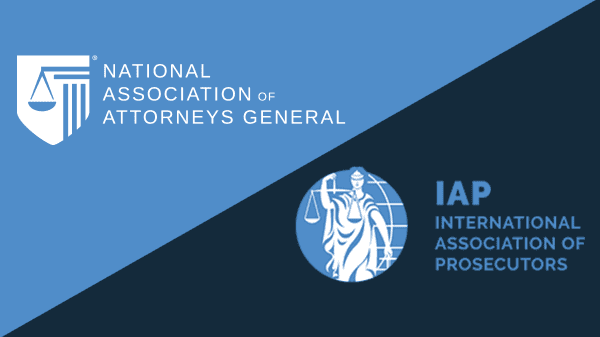Courage comes in many forms, but its basic principle is immutable – the ability of humans to act for the greater good in the face of danger. As we write this article, in Macedonia, a group of independent prosecutors specially selected to investigate and prosecute corruption within their own government, embody courage. Their story is worthy of our attention because, as prosecutors, they are the best of us. And we are proud to call them our friends.
We had the good fortune to travel to Macedonia in November 2015 to assist a team of prosecutors to gain the trust of a skeptical public in their mission to root out corruption uncovered in a massive scandal involving alleged illegal wiretaps, bribery, and other crimes. Representatives from the National Association of Attorneys General and the U.S. Department of State organized and sponsored the trip. We left the United States as two people whose lives may never have intersected but for law conferences. We returned home as friends and with a renewed enthusiasm for the rule of law and the role of lawyers.
By way of background, the Republic of Macedonia was formed in 1991, following the breakup of the former Socialist Federal Republic of Yugoslavia. Macedonia is a landlocked country bordering Kosovo, Serbia, Bulgaria, Greece, and Albania. The government of Macedonia is a parliamentary democracy with three branches: executive, legislative, and judicial. Macedonia’s legal system is based upon civil law. In 2010, the legislature instituted changes to the law of criminal procedure that shifts the system from an inquisitorial one to one that is more adversarial, closer in concept to the U.S. system. The Institution of the Public Prosecution is an independent state body of prosecutors established by the Constitution. There are roughly 200 public prosecutors in Macedonia.
Two major political parties in Macedonia vie for power: the Democratic Party of Macedonian National Unity (VMRO) and the Social Democratic League of Macedonia, (SDSM). The VMRO is a center-right nationalist party. The SDSM is a reformed, formerly Communist organization dating back to the former country of Yugoslavia. In 2014, the VMRO won the parliamentary elections. In 2015, the leader of the SDSM, Zoran Zaev, revealed that the government had conducted widespread and presumably illegal wiretaps, recording approximately 670,000 conversations traced to more than 20,000 telephone numbers. The targets of the wiretaps included journalists, politicians, judges, religious leaders, and government officials. The recordings have been authenticated. They allegedly reveal the involvement of government and political leaders in crimes and other wrongs ranging from election fraud, bribery, blackmail, and extortion to abuse of power, cronyism, and nepotism.
In the wake of this stunning revelation, the European Commission gathered together independent rule of law experts to make recommendations. The European Union, along with other countries, including the United States, reached an agreement with the Macedonian government that resulted in the formation of the Special Prosecutor’s Office. The government agreed to the appointment of a special prosecutor, Katica Janeva, to investigate crimes arising out of the content of the unauthorized wiretaps. Twelve additional prosecutors have been appointed to work with her, along with investigators who have been assigned to the team.
Media interest in the appointment of the special prosecutor has been intense. In Macedonia, there are independent media outlets, and then there are press outlets that function as mouthpieces for the government or for the opposition party. Relations between the independent media and the government have been strained. During a special meeting arranged for us by the U.S. Embassy, press representatives reported to us that a significant percentage of cases pending in the courts are defamation actions filed against journalists. The experts’ group on rule of law issues appointed by the European Commission reported that, despite the guarantee of freedom of the press in Article 16 of the Constitution and the decriminalization of defamation actions, journalists risk retaliation from political leaders for criticizing their platforms. Media organizations’ reliance on government-sponsored advertisements further interferes with their independence.
Some of the wiretap recordings have been leaked to the media, something referred to as the “bombs.” When talk turns to “dropping bombs,” typically it is the military and not the communications professional nor the attorney who are the responders of first resort. But in the case of the Macedonian political crisis, we found ourselves on the front lines in the midst of a battle for information. It is against this backdrop that we set out on our mission to assist Special Prosecutor Katica Janeva and her team.
Kathleen Jennings: “I could not have asked for a better traveling companion. After all, not only was Anne the director of communications for the Wisconsin attorney general, but she also wrote the definitive book on serial killer Jeffrey Dahmer. I confess to being obsessed by all books crime-related, and so a beautiful relationship began.”
Anne E. Schwartz: “As the anticipation for our deployment was building, Kathy and I were developing a synergy for our individual teaching styles as we were developing a friendship – all by phone. I was honored to travel with one of the country’s top criminal prosecutors and rule of law scholars. But we truly gelled when we discovered we had shared concerns about whether there would be a hairdryer in the room or access to decent coffee. Our final phone conversation ended with, ‘See you in Vienna.’ We both liked the worldliness of that.”
We met in the airport in Vienna. Then it was onto Skopje, the capital of Macedonia. We immediately began to collaborate with our embassy friends and did a deep dive into the country and its current issues. It was clear from the start that our partners at the Embassy were grateful that we were coming and they set about to be the perfect hosts with excellent preparation, hospitality and friendship from Filip Janiceski, legal specialist with the Bureau of International Narcotics and Law (INL) Enforcement Affairs; Mark Lasser, senior justice advisor with INL Justice; Verica Spaseva, program and budget analyst, INL Justice; and many others stationed at the U.S. Embassy in Skopje.
Filip translated not only the language but also the customs – perhaps the most important translation of all. He introduced us to the food, the drink and “the way it is done in Macedonia.” We immediately embraced the espresso-like coffee with a bit of milk that was unlike any beige, watery caffeinated beverage that passes for a latte at the coffee chains. We would need those coffees to get us through a marathon of invaluable meetings at the Embassy that first day.
We were fortunate to meet with U. S. Ambassador Jess Baily and Deputy Chief of Mission Barton J. Putney, both of whom provided sage advice on our mission. We also met with a knowledgeable group of reporters and non-profit organizations, who shared valuable information about the concerns of journalists in Macedonia when reporting on government matters. They overwhelmingly believe that transparency in government operations was lacking, that the media were punished for voicing criticism of the government and that access to critical information was given to favored media outlets over others. This day of meetings provided a strong foundation and reference point for crafting the next day’s training sessions.
We twice visited the Chief Public Prosecutor Marko Zvrlevski, who had initiated a challenge to the Special Prosecution team over the constitutionality of the Special Prosecutor law.
Our mission was to counsel the Special Prosecution team on how to build public trust in the integrity of their work. Lamentably, there is very little positive interaction between government officials and the press. Macedonian government officials have not historically been receptive to open government. This has understandably caused the independent media to distrust all government officials and view even the Special Prosecutors’ role with skepticism.
Filip translated tirelessly the entire day and the expected deliverables were unmistakable – enhanced credibility, transparency in information sharing, and an action plan for communicating the charges in the cases. Two things were immediately clear: the prosecutors were extremely receptive to our teaching plan and the issues created by the release of illegal wiretap recordings are no different in Macedonia than they are Washington, D.C. Frustrations over media coverage and the justice system’s concerns over how that coverage impacts our cases are universal. On that we all agreed – even if it wasn’t in the same language.
Equipped with the necessary background information, we began our real work, meeting with the Special Prosecution team. Our meetings took place at a hunting lodge called Kamnik. The setting was interesting, with gunshots in the distance and striking displays of animal head hunting trophies lining the walls of the dining hall. Despite the constant visual reminder of the origin of our food, throughout our stay we ate meals prepared by chefs who took great pride in displaying their culinary achievements to their guests. The food had a distinctly healthy and fresh Mediterranean style, with the addition of a variety of meat dishes. We had many conversations about our meals, with Filip commenting in a tongue-in-cheek style we came to love, that the Macedonian people took the art of eating well so seriously that a Macedonian chef was recently imprisoned for cooking a bad meal.
The group sat down to work. That first day together, we all eyed each other curiously, as we moved through our agenda amid the challenges of simultaneous translation. Eventually we got used to the laughter that came a bit after the translation. Sometimes the laugh never came, as the humor didn’t always translate. There were many messages to convey, most important that the role of the Special Prosecution team was to do justice impartially and fairly. It was imperative that its work be understood by the public the prosecutors serve. This would require skills in communicating their message to the public, by having regular contacts with the press, by setting up avenues for the press to receive their releases through regular social media posts, and by building trust through honesty and transparency.
When asked to form their mission statement, we watched with pride as the Special Prosecution team truly worked as a team. They developed core principles that govern prosecutors universally: To do justice, to uphold the rule of law, to restore public trust in government, to be transparent in their actions and be independent from political and other influences. At the same time, the team emphasized the importance of protecting witnesses who come forward during the investigation of crimes arising out of the illegal wiretaps as well as the protection of suspects’ rights and that these priorities meant that the investigation could not be open to the public.
While we helped the team begin the process of setting up a press plan, by the second day the team was teaching itself. They had selected a press spokesperson, a bright and engaging prosecutor named Lenche Ristoska. They had formulated a plan for their first press release. They were on their way. We are happy to report that they have had several excellent press releases, have garnered a substantial number of followers on social media, and have made significant progress with media relations.
The substantive work of this group of brave prosecutors is daunting. We must use the adjective “brave” because they are charged with investigating the very government that employs them and, in many cases, their families. There were concerns expressed not so much about their own security, but the security of their loved ones. They know that indictments may be brought against high-ranking government officials and, perhaps, against members of the opposition party. Either way, the team is working in the vortex of a scandal that threatens to destabilize the government of this young country.
Indeed, a recent media account from February of this year reveals that the Special Prosecutor’s Office is under attack, with allegations that the team has pressured witnesses to testify with promises of lighter sentences. Media reported that several criminal charges were brought against members of the team, filed with the Public Prosecution Office. The special prosecutors deny that any members of the team have broken any laws and it is believed that the aim of these charges is to undermine the effectiveness of the special prosecutor’s mission.
Since returning home, we often have asked ourselves whether we would have the courage to battle injustice on such a large scale at the risk of losing our livelihood, at the risk of harm to our family, and now at the risk of possible imprisonment. We all hope that we would find that brand of courage – to do the right thing in spite of the consequences. As prosecutors, we should be proud that the cause of justice is alive and well in the hearts of these brave lawyers. They thanked us profusely for traveling to teach them, and we responded that it was our honor to serve their cause. We felt we accomplished much in Macedonia. We returned home determined to mirror that courage as we represent justice in our own communities.
Anne: “I was intrigued by the opportunity to visit the Balkans – a place I never considered in any travel planning. Ever. But the mission – to share best practices in public information – is something I have done before and the chance to do it a half a world away would be a gift that would change the game for the prosecutors and it would change my life.”
Kathy: “The cause of justice is universal. Working with this team of stalwart prosecutors enthusiastically diving into the task of ensuring justice for the people they serve reinvigorated my commitment to the people I serve. Teaching is a gift, to the student, but also to the teacher. I hope that one day I can shake the hands of this fine group of prosecutors and thank them for their service.”
”We owe a special thanks to Jeanette Manning of the National Association of Attorneys General, Roushani Mansoor and Regina Kang of the U.S. Department of State and, of course, to our friends at the U.S Embassy in Skopje. They make justice possible. As Winston Churchill wrote, “Success is not final, failure is not fatal; it is the courage to continue that counts.”





